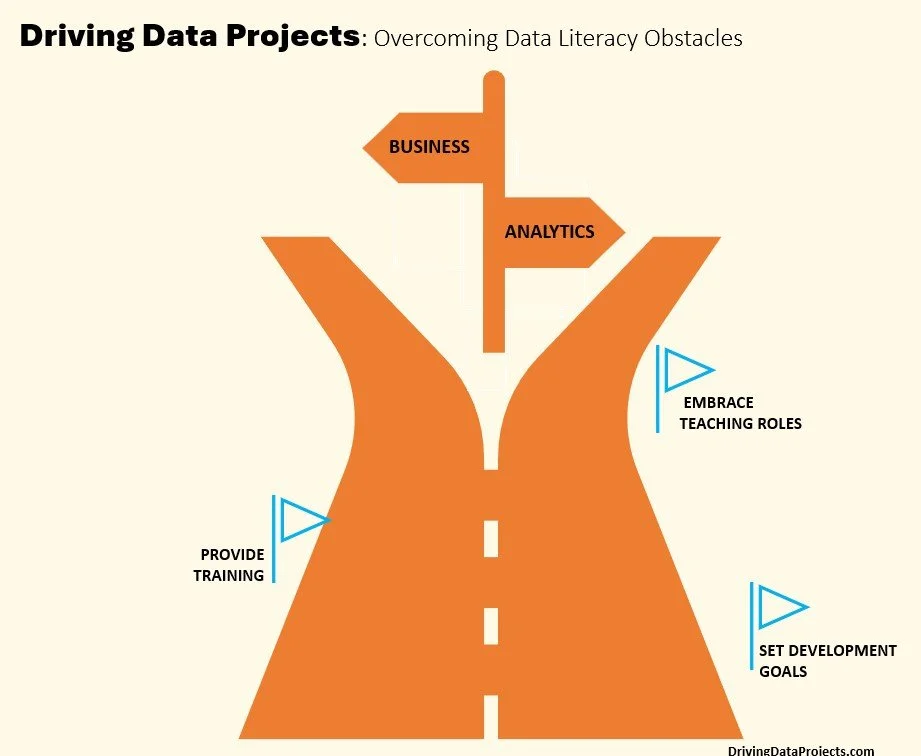The symbiotic relationship between technical analytics development and business utilization underscores the heightened emphasis on data literacy skills. Recognizing that literacy demands effort from technical and business domains, analysts must simplify and convey insights while business teams must effectively apply them.
Amidst discussions of talent shortages, the demand for business-side proficiency in analytics consumption is equally pressing. Bridging these gaps in literacy becomes a priority, especially with the fast adoption and proliferation of AI tools. Mature analytics organizations invest in self-service models, empowering business units with analytics skills to drive sustained growth and self-sufficiency.
Data-forward organizations must remember that businesspeople may need help with:
Data awareness: paying attention to available data, including its quality, sufficiency, and fit-for-purpose, and exploring what it contains.
Decision awareness: paying attention to one’s decision-making methods and the extent to which decisions can be helped with analytics.
Self-sufficiency: using business intelligence resources and visualization tools to explore data and perform basic analysis via self-service.
Symptoms of this area:
Analytical teams commonly complain about the business team’s lack of readiness to use analytical output.
Business teams commonly complain about the analytics team’s lack of ability to explain what they’ve found and how to use it.
There is no formal data literacy program to address the two prior concerns and assuage the risks of upcoming regulations.
Overcoming Data Literacy Obstacles:
Achieving a high level of corporate data literacy requires commitment and effort from everyone.
Be specific about what businesspeople in specific roles need to understand and what they can do with analytics.
Encourage analytics professionals working “in the field” to embrace the roles of teacher, advisor, coach, or “personal analytics trainer” for business colleagues.
Set development goals and provide training to the analytical team regarding how to best distill and communicate the details of their technical work and the results they find.
Set development goals, provide training, and offer ongoing support. Businesspeople should effectively “minor” in analytics.
Having one side of the equation handled isn’t enough. Ensure that both the analytics and business teams know their responsibilities related to data literacy. They should also be aware of the efforts being made by their counterparts so that they understand that it is truly a two-way street.
